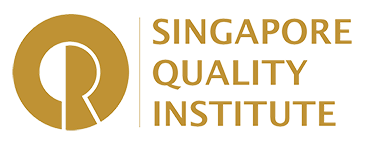Lean Thinking & Practices for Retail Industries
Course Objective Lean Thinking is a philosophy aimed at eliminating waste while maximizing value. It’s a systematic approach focused on creating more value for customers with fewer resources. Together with a set of Lean Practices, it can optimize efficiency and minimize waste in various processes. Objectives By the end of this course, participants will have…
LINE BALANCING TECHNIQUES FOR OPERATIONS MANAGEMENT
Introduction Line balancing is used to minimise idle time and remove potential bottlenecks within a process. Effective line balancing forms the core of every successful organisation as the strive to increase productivity without incurring unnecessary costs gathers steam. Factors contributing to high costs such as excessive overtime and manpower, high level of inventory and idle…
MEASUREMENT SYSTEM ASSESSMENT
Introduction A capable measurement system will bring about an effective and efficient implementation of any process control program and improvement initiatives. The methodology adopted for MSA is referenced to AIAG-MSA and AS13003. Objectives This course will enable the participants to: Understand the fundamental principle of measurement system and its effect and impact on the quality…
Poka-Yoke (Mistake Proofing)
Introduction Poka-Yoke, or mistake-proofing, is a critical concept in quality management aimed at preventing errors before they occur or reaching the customer. This training program equips participants with the knowledge and skills to implement Poka-Yoke techniques effectively within their organizations, ultimately enhancing product quality, reducing defects, and increasing customer satisfaction. Objectives Understand the principles and…
QC TOOLS AND TECHNIQUES
Introduction Manufacturers can choose from a variety of tools to improve their quality processes. The trick is to know which tools to use for each situation. Once the basic problem-solving or quality improvement process is identified, the appropriate tools can be used by any professional to ease the quality improvement process, such as: flowcharts, check…
Risk Management – Embracing Disruptive Innovation in Technology
Introduction: The course aims to empower participants with the essential knowledge and skills required to effectively manage risks associated with disruptive technological innovations. It encompasses comprehensive training in systematic risk identification, with the overarching goal of preparing participants for organizational risk management. Additionally, it delves into the critical steps necessary to minimize, mitigate, or manage…
Root Cause Analysis (RCA)
Introduction In today’s fast-paced business environment, recurring problems can cause significant disruptions, increase costs, and impact quality. Root Cause Analysis (RCA) is a structured approach that helps organizations identify the underlying causes of problems rather than merely addressing symptoms. This comprehensive 2-day RCA training course equips participants with practical knowledge and skills to systematically analyze…
SAMPLING PLAN METHODOLOGY
Introduction A simple method for choosing a sample size from a population is through what quality engineers refer to as the square root of N plus one sampling rule. This rule is apparently not statistically motivated nor is it mentioned by sampling theorists and practitioners. As a matter of fact, Sampling plans are used to…
SS 620:2016 (2021) Good Distribution Practice for Medical Devices – Requirements & Internal Auditor Training Course
INTRODUCTION It is essential to equip our people who is playing the leading role in an organization with appropriate understanding and appreciation in the application of SS 620:2016 (2021) Good Distribution Practice for Medical Devices – Requirements in order to lead and supervise their subordinates on the shop-floor effectively and efficiently. COURSE OBJECTIVE (a) To…









